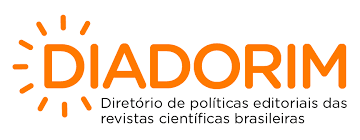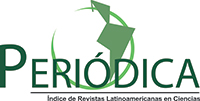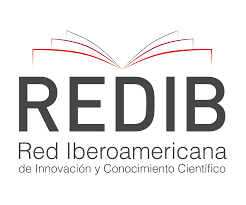Reconciliação medicamentosa num serviço de urgência
um processo de melhoria contínua
DOI:
https://doi.org/10.1590/ce.v30i0.95837Palavras-chave:
Reconciliação medicamentosa, Segurança do paciente, Serviço hospitalar de emergência, Telessaúde, Familiares acompanhantesResumo
Objetivos: estruturar o plano de melhoria para a reconciliação da medicação num serviço de urgência português.
Método: elaborou-se o projeto de melhoria com a metodologia Plan, Do, Act, Plan (PDSA), em um estudo observacional, descritivo, quantitativo. Na etapa Plan, participaram 282 pacientes admitidos em serviço de urgência, cujo familiar teve teleconsulta de Enfermagem; e 447 na etapa Study. Realizada a estruturação da teleconsulta com a técnica Identify, Situation, Background, Assessment e Recommendation (ISBAR); formação da equipe.
Resultados: na prática habitual dos enfermeiros, identificaram-se 4,6% (n=13) discrepâncias não intencionais entre a prescrição e a medicação em uso no domicílio. Observou-se o aumento para 9,4% (n=42) de discrepâncias após a estruturação da teleconsulta, que passou a incluir as questões sobre a medicação habitual. A interrupção, sobretudo de medicamentos que atuam no sistema nervoso central, dose/frequência incorreta, foi a discrepância mais frequente, posteriormente corrigida.
Conclusão: o estudo contribuiu para identificar/corrigir as falhas na reconciliação de medicação, a fim de evidenciar a importância da participação da Enfermagem e da família.
Publicado
Como Citar
Edição
Seção
Licença
Copyright (c) 2025 Ana Cristina de Almeida Marinho Diniz, Anabela Pereira Borges Sousa, Cláudia Tartaglia Reis, Susana Maria Sardinha Vieira Ramos, Paulo Manuel Máximo Barreiros, Paulo Jorge dos Santos Sousa

Este trabalho está licenciado sob uma licença Creative Commons Attribution 4.0 International License.
A Cogitare Enfermagem se reserva no direito de efetuar, no artigo publicado, alterações de ordem normativa, ortográfica e gramatical, com vistas a manter o padrão culto da língua, respeitando, porém, o estilo dos autores.
O estudo publicado é de inteira responsabilidade do(s) autor(es), cabendo exclusivamente à Cogitare Enfermagem a avaliação do manuscrito, na qualidade de veículo de publicação científica. Não será permitido acréscimo ou mudança de autoria durante a etapa de avaliação ou após aceite do texto submetido.
A Cogitare Enfermagem não se responsabiliza por eventuais violações à Lei nº 9.610/1998, Lei Brasileira de Direitos Autorais.
A Cogitare Enfermagem permite que o autor detenha o copyright dos artigos aceitos para publicação, sem restrições.
Propriedade Intelectual e Termos de uso
Responsabilidade do Autor:
Quanto a autoria, os autores necessitam especificar, na página de identificação, qual o tipo de contribuição individual que exerceu durante a elaboração do artigo. Conforme os critérios estabelecidos pelo ICMJE disponível em: http://www.icmje.org/recommendations/browse/roles-and-responsibilities/defining-the-role-of-authors-and-contributors.html .
É importante destacar que são considerados quatro critérios mínimos de autoria, e todos aqueles designados como autores devem atendê-los, são eles:
- Contribuições substanciais para a concepção ou desenho do estudo; ou a aquisição, análise ou interpretação de dados do estudo;
- Elaboração e revisão crítica do conteúdo intelectual do estudo;
- Aprovação da versão final do estudo a ser publicado;
- Responsável por todos os aspectos do estudo, assegurando as questões de precisão ou integridade de qualquer parte do estudo.
Não será permitido acréscimo ou mudança de autoria durante a etapa de avaliação ou após aceite do texto submetido.
Os artigos publicados estarão licenciados sob a licença Creative Commons CC BY 4.0 Creative Commons — Attribution 4.0 International — CC BY 4.0 – A atribuição adotada pela Cogitare Enfermagem é permitida:
- Compartilhar – copiar e redistribuir o material em qualquer mídia ou formato;
- Adaptar – remixar, transformar e construir sobre o material para qualquer finalidade, mesmo comercialmente;
- Atribuição — Você deve atribuir o devido crédito, fornecer um link para a licença, e indicar se foram feitas alterações. Você pode fazê-lo de qualquer forma razoável, mas não de uma forma que sugira que o licenciante o apoia ou aprova o seu uso;
- Sem restrições adicionais — Você não pode aplicar termos jurídicos ou medidas de caráter tecnológico que restrinjam legalmente outros de fazerem algo que a licença permita.
Responsabilidade do Site:
A Cogitare Enfermagem encoraja os Autores a arquivar seus manuscritos aceitos, publicando-os em blogs pessoais, repositórios institucionais e mídias sociais acadêmicas, bem como postando-os em suas mídias sociais pessoais, desde que seja incluída a citação completa à versão do website da revista.”






















